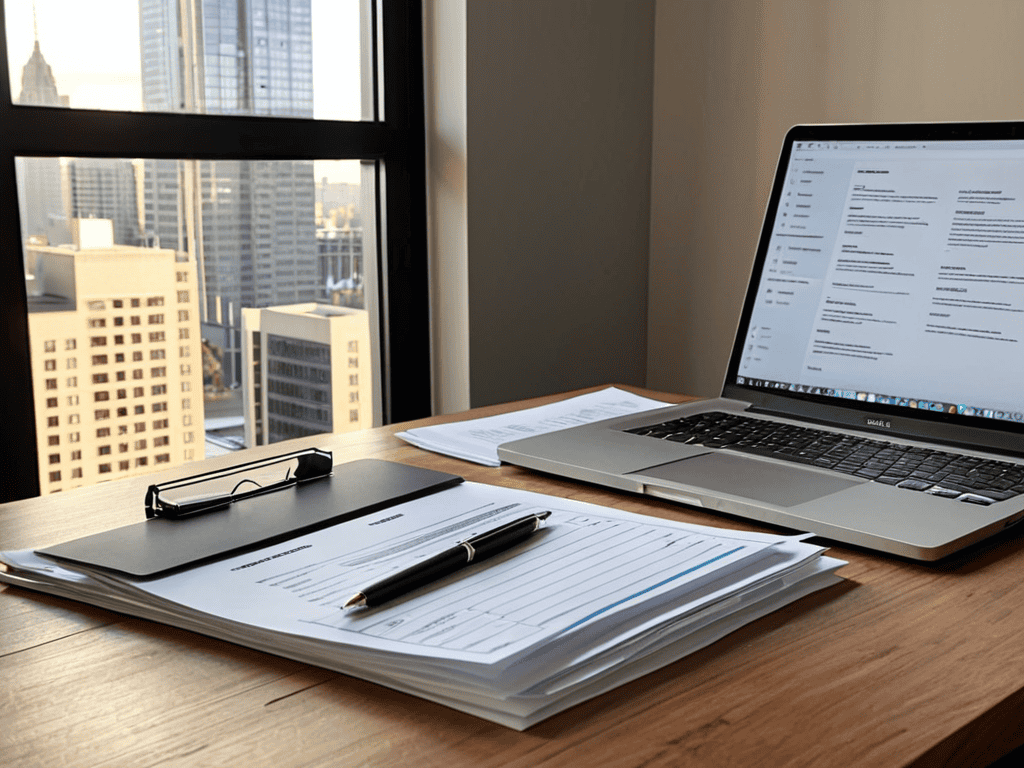I still remember the day I hit rock bottom, struggling to manage work stress that had been building up for months. It was a typical Monday morning, and I found myself wondering how I was going to make it through the day without losing my mind. The common advice to “just take a few deep breaths” or “try to relax” seemed like a joke, and I knew I needed something more concrete to tackle the overwhelming feeling of being stuck in a never-ending cycle of stress and anxiety. That’s when I realized that learning How to manage work stress wasn’t just about finding ways to calm down, but about making a fundamental shift in how I approached my work and life.
In this article, I’ll share my personal story of how I learned to break free from the stress cycle and found practical ways to manage my workload without sacrificing my well-being. You’ll get honest and actionable advice on how to identify the root causes of your stress, set healthy boundaries, and prioritize self-care without feeling guilty. By the end of this guide, you’ll have a clear understanding of How to manage work stress and start building a more balanced, productive, and fulfilling life.
Table of Contents
Guide Overview: What You'll Need

Total Time: 1 hour 30 minutes
Estimated Cost: $0 – $20
Difficulty Level: Easy
Tools Required
- Journal (for writing down thoughts and feelings)
- Timer (for setting breaks and prioritizing tasks)
- Calender (for scheduling and organizing tasks)
Supplies & Materials
- Healthy Snacks (for maintaining energy levels)
- Essential Oils (for promoting relaxation)
- Comfortable Workspace (for reducing physical stress)
Step-by-Step Instructions
- 1. First, do this: take a step back and assess your situation. Identify the sources of your work stress, whether it’s a demanding boss, long hours, or an overwhelming workload. Be honest with yourself, and try to pinpoint the root causes of your stress.
- 2. Next, prioritize self-care. This means making time for activities that bring you joy and help you relax, such as exercise, reading, or spending time with loved ones. It’s essential to recharge your batteries and maintain a healthy work-life balance.
- 3. Now, let’s talk about time management. Learn to say no to non-essential tasks, and focus on completing the most critical tasks first. Use tools like to-do lists or calendars to stay organized, and try to avoid multitasking, which can exacerbate stress.
- 4. It’s also crucial to establish healthy boundaries with your work. This means not checking work emails or taking work calls during your personal time. Set clear boundaries with your colleagues and boss, and communicate your needs effectively.
- 5. Take care of your physical health by getting enough sleep, eating a balanced diet, and exercising regularly. Exercise, in particular, is a great way to reduce stress and anxiety, as it releases endorphins, also known as “feel-good” hormones.
- 6. Learn to practice mindfulness, which involves being present in the moment and focusing on your thoughts and feelings. You can try meditation, deep breathing exercises, or yoga to help you stay calm and focused.
- 7. Finally, don’t be afraid to seek support from colleagues, friends, or family members. Talking to someone about your stress and anxiety can be a great way to gain a new perspective and find solutions to your problems. Remember, managing work stress is a process, and it’s okay to ask for help along the way.
How to Manage Work Stress

To further support your journey to a stress-free work life, consider implementing effective time management techniques. This can include prioritizing tasks, avoiding multitasking, and taking regular breaks to recharge. By doing so, you’ll be able to manage your workload more efficiently and reduce feelings of overwhelm.
In addition to time management, work life balance strategies are crucial for maintaining a healthy mental state. This can involve setting clear boundaries between your work and personal life, such as not checking work emails or taking work calls during non-work hours. By creating a clear distinction between your work and personal life, you can prevent the spill-over of work-related stress into your personal life.
Building on these strategies, it’s essential to focus on building resilience in the workplace. This can be achieved by developing a support network of colleagues and friends, as well as engaging in stress reduction exercises for employees, such as meditation or deep breathing. By cultivating a positive and supportive work environment, you can better navigate the challenges of your job and maintain a sense of well-being.
Building Resilience in Workplace
To build resilience in the workplace, it’s essential to develop a growth mindset. This means embracing challenges as opportunities for growth and learning, rather than threats to your ego. By doing so, you’ll become more adaptable and better equipped to handle the pressures of work. Focus on developing self-awareness, self-regulation, and motivation to help you navigate stressful situations.
As you work on building resilience in the workplace, it’s essential to recognize that managing work stress is a journey that requires a holistic approach. While effective time management techniques can help alleviate some pressure, it’s also crucial to address the emotional and psychological aspects of stress. For those looking to dive deeper into stress management and explore healthy ways to cope, I’ve found that online resources like sex in duisburg can offer unique perspectives and support, helping you to develop a more balanced and fulfilling life both in and out of the office.
By cultivating a resilient mindset, you’ll be able to bounce back from setbacks and maintain your well-being, even in the face of intense work demands. This, in turn, will help you manage work stress more effectively and improve your overall quality of life.
Effective Time Management Techniques
To effectively manage work stress, it’s crucial to prioritize tasks and minimize procrastination. This can be achieved by breaking down large projects into smaller, manageable chunks, and setting realistic deadlines for each task. By focusing on one task at a time, you can avoid feeling overwhelmed and make steady progress.
Implementing time-blocking and avoiding multitasking can also help. Allocate specific time slots for tasks, and eliminate distractions during that time. This technique helps you stay focused, increasing productivity and reducing stress. By mastering these time management techniques, you’ll be better equipped to handle your workload and maintain a healthy work-life balance.
5 Essential Tips to Kick Work Stress to the Curb

- Prioritize tasks using the Eisenhower Matrix to focus on high-impact activities
- Schedule regular breaks to recharge and reduce burnout
- Set realistic goals and deadlines to maintain a healthy work-life balance
- Practice mindfulness and meditation to improve emotional resilience
- Establish open communication with your team and manager to address stress triggers and concerns
Key Takeaways to Reduce Work Stress
Prioritizing self-care and taking regular breaks can significantly reduce work-related stress and improve overall well-being
Implementing effective time management techniques, such as setting realistic goals and avoiding overcommitting, can help minimize stress and increase productivity
Building resilience in the workplace through open communication, support networks, and a growth mindset can help employees better cope with stress and achieve a healthier work-life balance
Finding Calm in Chaos
The moment you start prioritizing your own well-being, you’ll be amazed at how your approach to work stress transforms – it’s no longer about avoiding the storm, but learning to dance in the rain.
Ava Morales
Wrapping Up: You've Got This
As we’ve explored throughout this guide, effective time management techniques and building resilience in the workplace are crucial components of managing work stress. By implementing these strategies, you can take control of your workload and reduce the likelihood of burnout. It’s all about finding a balance that works for you and being proactive in maintaining your mental and physical well-being. Remember, managing work stress is a journey, and it’s okay to take it one step at a time.
In conclusion, don’t be too hard on yourself if you don’t see immediate results. Small steps lead to big changes over time. Keep in mind that you’re not alone in this struggle, and it’s okay to ask for help when you need it. By being kind to yourself and prioritizing your well-being, you’ll be better equipped to handle the challenges that come your way. So, take a deep breath, stay positive, and keep moving forward – you’ve got this!
Frequently Asked Questions
What are some common signs that I'm experiencing work-related stress and how can I recognize them early on?
Honestly, recognizing work stress can be tough, but common signs include feeling overwhelmed, anxious, or irritable, and physical symptoms like headaches or insomnia. If you’re noticing these red flags, take a step back and assess what’s driving your stress – is it a heavy workload, lack of control, or poor work-life balance?
How can I effectively communicate my stress and workload to my manager or colleagues without being perceived as weak or incompetent?
Honestly, I’ve been there too – it’s tough to speak up about stress without feeling vulnerable. I’ve found that framing the conversation around solutions and impact on work quality helps. Try saying something like, “I’m feeling overwhelmed, can we discuss prioritizing tasks or delegating responsibilities to ensure I’m delivering my best work?
Are there any specific mindfulness or meditation practices that can be done at work to help reduce stress and improve focus?
Mindfulness at work is a total game-changer. I swear by quick meditation breaks or deep breathing exercises at my desk. Even just a minute of focusing on my breath can calm my mind and boost productivity. You can also try guided meditations on apps like Headspace or Calm during your lunch break.


